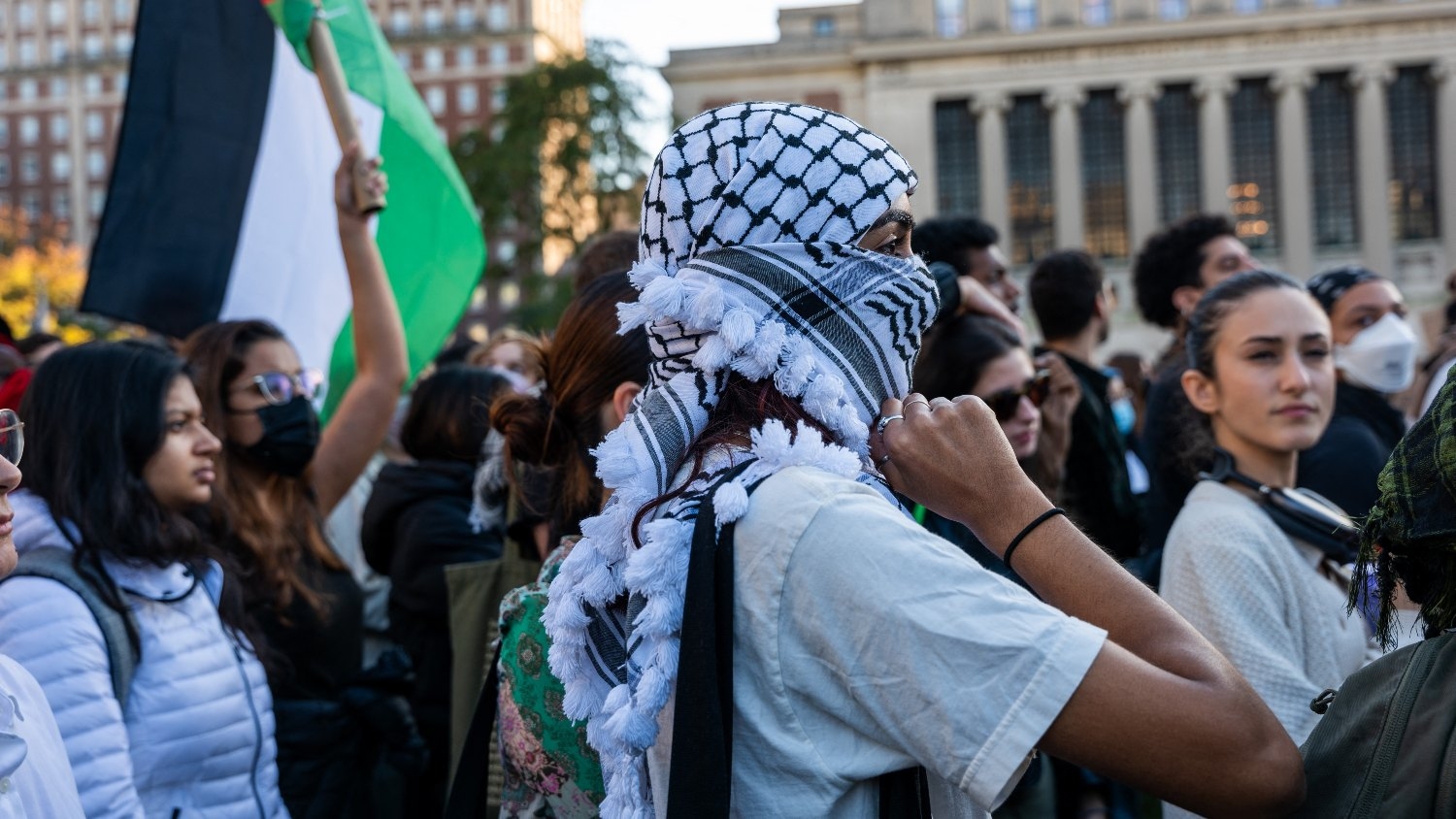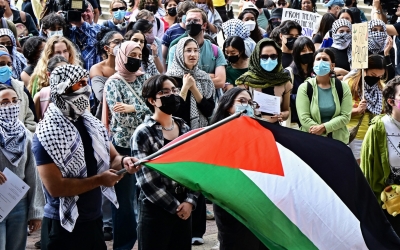Israel-Palestine war: Hundreds of Ivy League alumni pen letter in solidarity with pro-Palestine students

More than 250 alumni from every university in the Ivy League have come together to sign an open letter in solidarity with current students taking part in pro-Palestine demonstrations on campus. The letter also condemns these institutions' silence amid campaigns to stifle speech in support of Palestinian rights.
The letter comes as students at a number of Ivy League schools have been threatened with rescinded job offers, doxxing campaigns, and even physical violence for their support or activism related to Palestine. The intimidation campaigns have even extended to those simply calling for a ceasefire in Gaza.
"A free Palestine is within our reach. As alumni and fellow community members, we stand together to uplift student activism," said the letter, which has a total of 263 signatories at the time of writing.
"With privileges of life and voice of which so many are deprived today, let us keep our heads high as we continue to shed light where oppression has grown in darkness. History is on our side."
It said that the alumni signatories were "disturbed to watch our alma maters allow harm upon their own community members who spoke out about this humanitarian crisis".
New MEE newsletter: Jerusalem Dispatch
Sign up to get the latest insights and analysis on Israel-Palestine, alongside Turkey Unpacked and other MEE newsletters
The signatories added that the administration's silence and lack of support for these students amid Israel's bombing campaign, siege, and now ground invasion of Gaza is "calculated and contributes to the very narratives enabling genocide".
The letter comes amid an increasingly hostile environment for pro-Palestine activism on US college campuses. A number of students at schools across the country, including in the Ivy League, spoke to MEE earlier this week where they described the various ways in which they have been threatened, with no assurances or support from their administrations.
In one instance, after two dozen groups at Harvard University released a letter blaming Israel's 17-year blockade on Gaza for the deadly attack on Israel, a billionaire Harvard alumnus and donor called on the university to release the names of the student signatories, so companies wouldn't hire them.
Then, a "college terror list" was published online that included the personal information of student signatories, a tactic known as "doxxing" - it has since been taken down.
The campaign of censure goes beyond students, with several professors at Ivy League schools facing calls for them to be fired over their remarks or writings on Palestine. For example, Columbia Professor Joseph Massad was met with a petition calling for the university to fire him after he wrote an opinion piece that analysed the attack launched by Palestinian armed groups against Israel.
"We put this letter together to stand by the courageous young people abandoned by their administrations who are putting themselves at risk to stand up for justice and speak out against genocide," three signatories said in a statement shared with Middle East Eye.
"We remember all too well the days when we were in their shoes, intimidated by those in power and left wondering what our futures would look like: will we make it past the false smears? Will we still be successful?"
The signatories assured the students that the answer to that question was "yes".
"Enough is enough with the selective touting of free expression when it serves Ivy League pockets and perpetuates oppressive power. Our alma maters have obligations to teach truth and protect the safety of students. They should know better than to enable abuse," the signatories said.
'Desperately afraid of the truth'
The censorship on campuses is now not only coming from outside groups, it is also coming from the top levels of the US government.
The Biden administration recently announced it was directing several federal agencies to work with campus law enforcement to investigate antisemitism at universities.
The Biden administration adopted the International Holocaust Remembrance Alliance (IHRA) definition of antisemitism, which includes criticism of Israel as a form of bigotry.
The administration's effort comes after the Anti-Defamation League (ADL), an organisation with a history of attacking pro-Palestinian groups and Black activists, released an open letter to 200 colleges, calling on them to investigate the organisation Students for Justice in Palestine (SJP).
A few days later, the state of Florida issued an order to ban SJP chapters at universities across the state, accusing the student group of providing material support to Hamas, a US-designated terrorist group and one of the armed groups from Gaza that attacked Israel.
The signatories of the letter said the ongoing censorship campaign is reminiscent of previous attempts to curb free speech, including in the aftermath of the 9/11 attacks and during the civil rights movement and antiwar mobilisation in the 1960s.
"Efforts around the country claiming to censor terrorism or hate are guises to muzzle and criminalise those who speak up for justice, and we've seen this throughout history. How can speaking about the humanity of any group be an incitement to violence or hate towards anyone?" the three signatories told MEE.
"The erratic reactions by those seeking to suppress the calls for justice not only endanger the very academic freedom through which we have hope, but once again show how powerful student voices have been: their message is working, and those seeking to silence them are desperately afraid of the truth."
Middle East Eye delivers independent and unrivalled coverage and analysis of the Middle East, North Africa and beyond. To learn more about republishing this content and the associated fees, please fill out this form. More about MEE can be found here.


